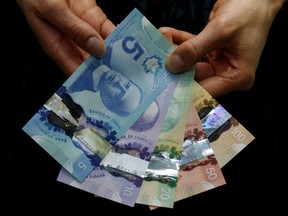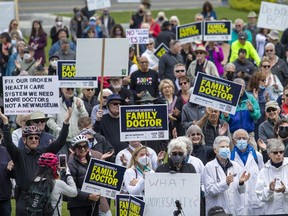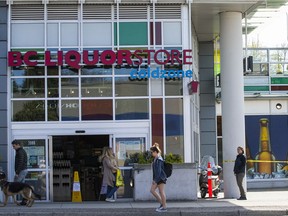Short of giving people cost-of-living bonuses, there is nothing the B.C. government can do

Article content
At the start of this year, people were talking about COVID-19. The Omicron wave was taking off, restrictions were still in place and B.C.’s provincial government was providing updates five days a week.
Advertisement 2
Article content
By the start of spring things had changed.
People were talking about inflation, as the costs of things began to rise — from mortgages to gas to rents — and the reality of a post-pandemic world started to appear.
Here’s five things to know about inflation in B.C.

What caused it?
The rate of inflation is a key economic indicator, and is defined by the price of a collection of goods (consumer price index) at one point in time compared to another.
Statistics Canada reported Wednesday that the consumer price index rose 6.8 per cent in April, the highest monthly increase since 1991 — with food costs growing 8.8 per cent from March to April.
When COVID-19 arrived in early 2020, the first thing that happened was the price of a litre of gas plunged. Then the real estate market stalled as viewings were cancelled. Soon, however, supply chain problems emerged, as COVID restrictions impacted the ease with which goods could be transported. This meant it was more expensive to do business and was the start of inflation as costs were passed on to consumers.
Advertisement 3
Article content
By late winter 2022, as prices began in general to rise, banks around the world started to increase interest rates as a way to temper prices.
This however, particularly in B.C., has increased the cost of servicing a mortgage — which leads to inflation (though only impacts people with a mortgage, and with a variable interest rate mortgage).

Who is hardest hit?
Inflation is hardest on people on a fixed income. If you need to spend more money on goods and services — especially gasoline, which has soared even more due to the war in Ukraine — and your income does not change, then you have to cut from somewhere. Or start using credit cards or lines of credit, that are seeing rates rise.
The wealthiest people, who have savings and investments, see those values rise and are spared the pain of inflation. For the majority of people, the only way out is a pay rise, which then leads to more inflation.
Advertisement 4
Article content

Is there a solution?
The Reserve Bank of Canada is tasked with managing the national economy with the tools it has. For instance, during COVID-19 the bank bought up as many bonds as it could (instead of businesses buying the bonds) as a way to keep interest rates down in order to keep the economy going. However, this had a negative impact in that money became so cheap it drove up housing prices.
For now, the bank is raising interest rates hoping that will reduce inflation. One positive side-effect for the federal government is that increases in the cost of everything leads to more goods and services tax revenues going into federal coffers.

Is there anything the provincial government can do?
Sadly, there is little. The provincial government and its Crown corporations are also impacted by inflation. Any collective agreements coming up, like with the B.C. Nurses’ Union, will include cost-of-living hikes that will need to be paid. And, as an example, B.C. Ferries has already increased fares to cover gas costs. This inflationary environment could be why Premier John Horgan’s promise to built an $800 million museum has gone awry among taxpayers.
Advertisement 5
Article content
Short of giving people cost-of-living bonuses or reducing taxes on gasoline, there is nothing the B.C. government can do.

Is everything going up in price?
Usually the last things to go up in price during an inflationary surge are vices — like alcohol, cigarettes and coffee. Anyone who drinks takeout coffee in Vancouver has already been hit with a 25 cent paper cup fee, while the price of whisky and wine are on the rise.
The price of beer and cigarettes, however, remain the same.
More news, fewer ads: Our in-depth journalism is possible thanks to the support of our subscribers. For just $3.50 per week, you can get unlimited, ad-lite access to The Vancouver Sun, The Province, National Post and 13 other Canadian news sites. Support us by subscribing today: The Vancouver Sun | The Province.
Inflation: Five things to know about rising costs in B.C. - Vancouver Sun
Read More
No comments:
Post a Comment